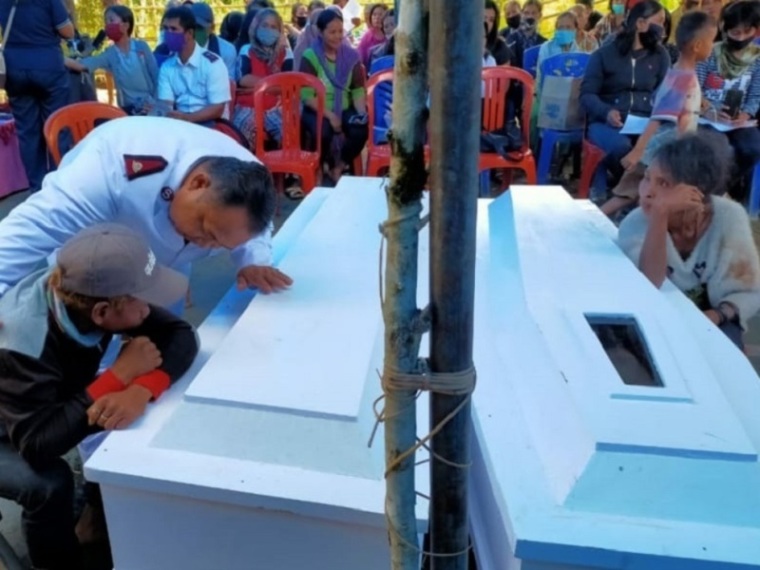
As I was doing some reading in preparation for this article, I came across a very interesting comment piece in The Guardian by a Jewish rabbi named Ephraim Mirvis. The article talks about persecution of the Uighur Muslim minority in China. Even more pertinent to my research was the stand taken by Mirvis, urging the Jewish community to take up the pursuit of justice for a different religious group.
Impossibilities
The Jewish Holocaust is perhaps the most well known of the genocides that have taken place around the world in the last century. Elie Wiesel was a Nobel prizewinner, political campaigner and author who documented his experiences in Auschwitz and Buchenwald. He challenged the world to remember what many people tried to ignore or play down.
Mirvis recalls that growing up in apartheid South Africa, the notion of any positive change with regards to apartheid seemed impossible in the light of the power and ruthlessness of the authorities. Yet, change eventually came.
In the same way it seemed impossible to prevent the oppression of Jews and others by the Soviet Union. Again, change eventually came because over time, ordinary people spoke out, even on behalf of people of a different faith and living on the other side of the world.
Now Mirvis is on a campaign to mobilise people to speak out against the oppression and genocide of the Uighurs in China. China is such a closed nation that it is hard to ascertain what is actually happening, but the weight of evidence is, according to Mirvis, overwhelming.
The evidence comes from satellite images, leaked documents and testimonies of survivors. A report in the Guardian outlines some of the activities that are going on, such as forced sterilization of women, locking millions of people in ‘re-education camps’.
Again, the situation seems impossible – it seems inevitable that China will continue its repression of religious minorities. But looking back historically, we can effect a change by speaking up!
It is easy to think that nothing we do will make a difference. Mirvis claims that this attitude creates a culture of apathy, and apathy is what allows hatred and atrocities to flourish. And if we think that we don’t have to do anything, because the oppressed people are Muslims, not Christians, think again! All human beings are made in the image of God and all need to be treated with respect and dignity.
Remember that what seems impossible for us is not impossible for God (Matthew chapter 19 verse 26).
Another impossibility in Indonesia
On 27 November, 2020, four Salvation Army workers were killed by Islamic militants in the village of Lemban Tongoa in central Sulawesi. Six homes were torched and around 750 people have fled the region.
This was not just a killing but a ritual slaughter carried out by East Indonesia Mujahadin (MIT) terrorists, where they chose to target a Christian missionary outpost and chose to slaughter Christians. Indonesian military, police, government officials and Muslim media deny that this atrocity was religiously or ethnically motivated, but their victims were specifically selected to ‘strike terror into the hearts of disbelievers’.
This act was condemned by the Indonesian Communion of Churches, which called for the government to catch the terrorists and secure the area. It was also condemned by the National Commission on Human Rights, the Indonesian Solidarity Party, the Indonesian Democratic Party of Struggle and the National Democratic Party.
Even in the face of such widespread condemnation, it is unlikely that the terrorists will be brought to justice, or even caught. But they not only threaten the lives of non-Muslims; they encourage other extremist groups to commit crimes which dishonour Indonesia.
Please pray that our Almighty God would
· Break through the apathy that seems to beset the world’s nations when hearing of atrocities against other people who they do not know, or who are of a different faith to themselves. This also involves the media: that there would be honest reporting of the atrocities, not just apathy because it is happening in a country far away.
· Raise up leaders and advocates in Indonesia who have the courage to stand up for religious liberty.
· Enable the government to maintain security and order, free from acts of terrorism.
· Give the peace that passes understanding to those grieving in Indonesia.
Behold, the eye of the Lord is on those who fear him, on those who hope in his steadfast love, that he may deliver their soul from death and keep them alive in famine. Our soul waits for the Lord; he is our help and our shield (Psalm chapter 33, verses 18-20).

Aira Chilcott is a retired secondary school teacher with lots of science andtheology under her belt. Aira is an editor for PSI and indulges inreading, bushwalking and volunteering at a nature reserve. Aira’s husband Bill passed away in 2022 and she is left with three wonderful adult sons and one grandson.
Aira Chilcott's previous articles may be viewed at http://www.pressserviceinternational.org/aira-chilcott.html